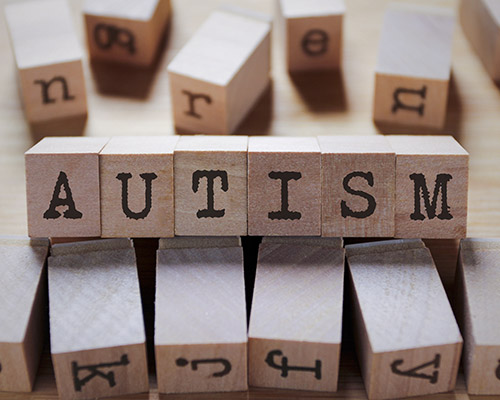Psychotherapy
Depression
Everyone feels sad or low sometimes, but these feelings usually pass with a little time. Depression—also called “clinical depression”—is a mood disorder that causes distressing symptoms that affect how you feel, think, and handle daily activities, such as sleeping, eating, or working. Symptoms must be present most of the day, nearly every day for at least 2 weeks. Research suggests that a combination of genetic, biological, environmental, and psychological factors play a role in depression. There are different types of depression, so it doesn’t look exactly the same in everyone, but the following are common signs and symptoms of depression:
- Persistent sad, anxious, or “empty” mood
- Feelings of hopelessness or pessimism
- Feelings of guilt, worthlessness, or helplessness
- Loss of interest or pleasure in hobbies or activities
- Decreased energy, fatigue, or being “slowed down”
- Difficulty concentrating, remembering, or making decisions
- Difficulty sleeping, early-morning awakening, or oversleeping
- Appetite and/or weight changes
- Thoughts of death or suicide or suicide attempts
- Restlessness or irritability
- Aches or pains, headaches, cramps, or digestive problems without a clear physical cause and/or that do not ease even with treatment

The first step in getting the right treatment is to visit a health care provider or mental health professional, such as a psychiatrist or psychologist. Your health care provider can do an exam to rule out other health conditions that may have the same symptoms as depression. Depression can be treated with medications, psychotherapy, or a combination of the two. Psychotherapy helps by teaching new ways of thinking and behaving, and changing habits that may be contributing to depression. Therapy can help you work through difficult relationships or situations that may be causing your depression or making it worse.
You can learn more about these disorders on the National Institute of Mental Health (NIMH)’s website (www.nimh.nih.gov). If you or someone you know is in crisis, get help quickly:
- If local, call Crisis Intervention at (717) 851-5235 or (800) 673-2496
- Call 911 for emergency services
- Go to the nearest hospital emergency room
- Call the toll-free, 24-hour hotline of the National Suicide Prevention Lifeline at 1-800-273-TALK (1-800-273-8255); TYY: 1-800-799-4TTY (4889)
(Information provided by NIMH)
Anxiety
Occasional anxiety is a normal part of life. But anxiety disorders involve more than temporary worry or fear. For a person with an anxiety disorder, the anxiety does not go away and can get worse over time. The feelings can interfere with daily activities such as job performance, school work and relationships. There are several different types of anxiety disorders, but commons symptoms include:
- Restlessness or feeling wound-up or on edge
- Being easily fatigued
- Difficulty concentrating or having their minds go blank
- Irritability
- Muscle tension
- Difficulty controlling the worry
- Sleep problems (difficulty falling or staying asleep or restless, unsatisfying sleep)
- Sudden and repeated attacks of intense fear
- Feelings of being out of control during a panic attack
- Feeling highly anxious about being with other people

Evaluation for an anxiety disorder often begins with a visit to a primary care provider to assess for physical health factors, such as an overactive thyroid, low blood sugar, or medication side effect, which can imitate or worsen anxiety. Anxiety disorders are generally treated with psychotherapy, medication, or both. Psychotherapy can help people with anxiety disorders by teaching different ways of thinking, behaving, and reacting to anxiety-producing and fearful situations. It can also help people learn and practice social skills, which is vital for treating social anxiety disorder. Stress management techniques and meditation can also help people with anxiety disorders calm themselves and may enhance the effects of therapy.
Information provided by National Institute of Mental Health (NIMH)
Posttraumatic Stress Disorder (PTSD)
PTSD is a disorder that develops in some people who have experienced a shocking, scary, life threatening or dangerous event. Fear triggers many split-second changes in the body to help defend against danger or to avoid it. This “fight-or-flight” response is a typical reaction meant to protect a person from harm. Nearly everyone will experience a range of reactions after trauma, yet most people recover from initial symptoms naturally. Those who continue to experience problems may be diagnosed with PTSD.
Symptoms usually begin early, within 3 months of the traumatic incident, but sometimes they begin years afterward. Symptoms must last more than a month and be severe enough to interfere with relationships or work to be considered PTSD. Symptoms are categorized into (1) re-experiencing symptoms (2) avoidance behaviors (3) arousal and reactivity symptoms and (4) changes in cognition and mood.
The main treatments for people with PTSD are medications, psychotherapy, or both. It is important for anyone with PTSD to be treated by a mental health provider who is experienced with PTSD. Effective psychotherapies tend to emphasize a few key components, including education about symptoms, teaching skills to help identify the triggers of symptoms, and skills to manage the symptoms.
Information provided by National Institute of Mental Health (NIMH)

Women’s Issues & Postpartum Depression
Mental disorders can affect women and men differently. Some disorders are more common in women such as depression and anxiety. There are also certain types of depression that are unique to women. Some women may experience symptoms of mental disorders at times of hormone change, such as postpartum depression, premenstrual dysphoric disorder, and perimenopause-related depression.
Perinatal depression, or Postpartum Depression, is much more serious than the “baby blues” (relatively mild depressive and anxiety symptoms that typically clear within two weeks after delivery) that many women experience after giving birth. Women with perinatal depression experience full-blown major depression during pregnancy or after delivery (postpartum depression). The feelings of extreme sadness, anxiety, and exhaustion that accompany perinatal depression may make it difficult for these new mothers to complete daily care activities for themselves and/or for their babies.

Bereavement/Grief
Grief is a natural response to losing someone or something that’s important to you. Maybe a loved one died, a relationship ended, or you lost your job. Other life changes, like chronic illness or a move to a new home, can also lead to grief. While there are known stages of grief, everyone grieves differently, and psychotherapy can help you understand your emotions, provide support and work through this difficult time.
Adjustment & Stress Problems

Sometimes we go through times where there are major life changes, resulting in adjustment difficulties. Divorce, career change, the end of a relationship, retirement, a move to a different area, parenthood, and many other changes may result in a period of sadness. Sometimes having a professional to talk to during these times can help to problem-solve, manage symptoms before they become more severe, and address thoughts that may be getting in the way of adjustment.
Stress is what you feel when you have to handle more than you are used to. When you are stressed, your body responds as though you are in danger. Some stress is normal and even useful. But if stress happens too often or lasts too long, it can have negative effects. It can be linked to headaches, upset stomach, pain, and trouble sleeping. It can weaken your immune system, making it harder to fight off disease. It can make you moody, tense, or depressed. Your relationships may suffer, and you may not do well at work or school. Psychotherapy can help teach stress management techniques such as relaxation skills, meditation, journaling, and modifying behaviors and activities causing stress. Cognitive Behavioral Therapy (CBT) is also used to address beliefs and thoughts related to situations causing stress.
Relationship, Sexual & Intimacy Issues
People often seek psychotherapy to help make decisions about how to handle relationships in their life. This can take the form of an individual seeking treatment alone, or a couple participating in treatment together. Most relationship problems are manageable, but when challenges are left unaddressed, tension mounts, poor habits develop, and the health and longevity of the relationship are in jeopardy. Couples often approach counseling with the expectation that a therapist can help in some way—though they may not know just how they expect the therapist to help. Some couples may want to develop better communication skills, enhance intimacy, or learn to navigate new terrain in their lives. For relationship counseling to significantly help a relationship, each partner needs to demonstrate honesty, an interest in doing relationship work, and a willingness to accept personal accountability.

Addictions

Did you know that addiction to drugs or alcohol is a disease? Substance use disorder changes normal desires and priorities. It changes normal behaviors and interferes with the ability to work, go to school, and to have good relationships with friends and family. At Yorlan, we take an integrative approach to the treatment of addictions, incorporating Cognitive Behavioral Therapy (CBT), the disease model of addiction, and traditional 12-Step approach to maintaining recovery. Success in treatment depends on internal motivation, or wanting to be clean for yourself, not others. It requires a commitment to the idea of complete abstinence, unless there are extenuating medical conditions requiring monitored medications. In addition, a complete clinical interview is required to determine the appropriate level of care, since some people require medical detox before outpatient treatment is initiated.
Our testing services are currently on hold due to COVID-19. If you would like to be placed on our wait list, please contact the office directly. We will contact you to schedule when our office re-opens.
Testing & Evaluation
Memory Disorders

Many conditions cause impairment of memory and other cognitive functioning. First, a medical doctor performs a full physical evaluation to rule-out other medical causes of memory loss. Brain imaging is often ordered in addition to neuropsychological testing to measure memory and other cognitive abilities compared to others the same age. A combination of medical evaluation, imaging, neuropsychological testing and clinical interview is the comprehensive method of identifying the presence of memory disorders such as dementia. If diagnosed, a collaborative approach with medical and psychological professionals can help to explore options and plan for the future. With proper treatment, the progression of memory loss can be slowed with medications, and monitored to help manage symptoms and adjust needs over time.
Traumatic Brain Injury (TBI) and Concussion

A TBI may lead to a wide range of short- or long-term issues affecting:
- Cognitive Function (e.g., attention and memory)
- Motor function (e.g., extremity weakness, impaired coordination and balance)
- Sensation (e.g., hearing, vision, impaired perception and touch)
- Emotion (e.g., depression, anxiety, aggression, impulse control, personality changes)
The Center for Disease Control defines a traumatic brain injury (TBI) as a disruption in the normal function of the brain that can be caused by a bump, blow, or jolt to the head, or penetrating head injury. Everyone is at risk for a TBI, especially children and older adults. The severity of a TBI may range from “mild” (i.e., a brief change in mental status or consciousness) to “severe” (i.e., an extended period of unconsciousness or memory loss after the injury). Most TBI’s that occur each year are mild, commonly called concussions. While concussions are considered “mild” forms of TBI, they can result in significant change in emotional, cognitive and physical health, especially if unmanaged.
Approximately 5.3 million Americans are living with a TBI-related disability and the consequences of severe TBI can affect all aspects of an individual’s life.11 This can include relationships with family and friends, as well as their ability to work or be employed, do household tasks, drive, and/or participate in other activities of daily living. Neuropsychological testing can help to specifically identify strengths and limitations related to a head injury, which then guides medical, physical and emotional recovery.
Information provided by National Institute of Mental Health (NIMH)
Occupational Rehabilitation
Yorlan Psychological Associates values its long-term relationship with the Office of Vocational Rehabilitation (OVR) and collaborates to provide comprehensive neuropsychological evaluations needed to provide occupational and academic recommendations for individuals with disabilities. Occupational testing is also helpful for individuals who are not disabled, but require assistance in determining career goals appropriate to their natural strengths and limitations. In this way, individuals are more likely to succeed and attain fulfillment from their career.

Attention Deficit Hyperactivity Disorder (ADHD)

ADHD can cause significant difficulties at work or school life, resulting in unemployment, and/or conflicts with your boss or loved one. It can also contribute to procrastination in turning in assignments or not completing examinations in the allotted time. Diagnosing ADHD is complex, as many other conditions can present similarly to ADHD. An accurate diagnosis by an experienced clinician is critical to guide you toward the proper treatment.
Some signs and symptoms of ADHD include:
- Careless in school or work
- Distractibility and problems sustaining your attention
- Procrastination and lack of follow through
- Messy desk or office
- Can’t sit still
- Losing track of things, instructions or shopping lists
- Fidgety and restless
- On the go, hyperactive
If a person is formally diagnosed with ADHD, test accommodations such as extended time on examinations or assignments, a quiet environment, or a reader or note taker for classes may be available to you under the Americans with Disabilities Act (ADA). Neuropsychological testing is usually required to document a disability in order to obtain additional time on exams such as the SAT, GRE, MCAT, LSAT and GMAT.
Learning Disorders

A learning disability is a discrepancy between one’s general intellectual ability (IQ) and performance on tests of reading, writing, and math. When academic skills are substantially below what is expected for a person’s age, and cause interference with academic or occupational functioning, a learning disorder is suspected. The cause is neurological—it is not a reflection of motivation or laziness and cannot be overcome by sheer willpower or tutoring. The only way a learning disability can be diagnosed is by neuropsychological testing or neuropsychological assessment, also called psychoeducational testing.
It’s important for you to have an evaluation done correctly. We recommend scheduling for an initial clinical interview first, which will include collection of detailed academic, cognitive, medical, and emotional history. At that point, determination of appropriates tests are made, and formal testing is scheduled. Once testing is completed, your psychologist writes the report and schedules a feedback session to review results and recommendations collaboratively. At Yorlan, our reports are routinely accepted for academic and occupational accommodations and we know the specific requirements to access disability services. Call us today for an appointment and have your testing done correctly
Intellectual Testing (Gifted and Intellectual Disability)
Yorlan also provides intellectual testing to help determine intellectual abilities for children, adolescents, and adults. There are two main reasons for intellectual testing. Sometimes children are quite bright, but are unchallenged in their current academic placement. Testing can assist in determining if a child qualifies as gifted. If identified as gifted, a professional evaluation can provide data to initiate a Gifted Individualized Education Program (GIEP), which provides more challenging academic programming such as advanced and gifted placement.
Other children may struggle with all classes and subjects despite effort and motivation to do well. They may require support to make decisions, plan, make social judgments, and perform activities of daily living such as personal care and safety. In this case, an intellectual disability may be the underlying cause. Intellectual testing helps to identify intellectual ability level as well as one’s ability to perform tasks of daily living. If identified as Intellectually Disabled (ID), a professional report qualifies an individual to all services under the Americans with Disabilities Act (ADA).

Autism Spectrum Evaluation
Autism is a neurodevelopmental disorder that affects the brain’s development of language, communication, cognition, and social skills. Autism exists on a spectrum, from a very mild condition of social awkwardness (previously called Asperger’s Syndrome), to the severe form in which intellectual abilities are also often impacted. Persons with autism spectrum illness exhibit social interaction difficulties, problems in verbal and nonverbal communication, as infants may not want to be touched or held, repeats certain words or phrases or physical movements, and may require their environment be the same—that is, they may not tolerate certain changes in diet or environment.
Autism Spectrum Illness can be difficult to diagnose, and it can be confused with other neuropsychological conditions, such as Nonverbal Learning Disability (NLD). However, an accurate autism diagnosis is critical so that important therapeutic services may be instituted. An evaluation is the first step toward finding out if you or your child or loved one has autism spectrum illness. We recommend scheduling for a initial clinical interview first, which will include collection of detailed academic, cognitive, medical, and emotional history. At that point, determination of appropriates tests are made, and formal testing is scheduled. Once testing is completed, your psychologist writes the report and schedules a feedback session to review results and recommendations collaboratively.

Fitness for Duty/Firearms Evaluations
A fitness-for-duty exam is a medical examination of a current or potential employee to determine whether the employee is physically or psychologically able to perform the job. Sometimes, fitness-for-duty exams are required when an employee is ready to return to work after taking time off for a serious illness or injury. A fitness-for-duty exam might also be required of an employee to ensure they are able to perform the job safely. In general, fitness for duty evaluations aim to determine if a condition may prevent a employee from performing their occupational functions, and to assess if the employee poses a direct threat to his/her own safety or the safety of others.
A fitness for duty evaluation typically consists of a physical examination by a medical physician, followed by a psychological evaluation. The psychological evaluation involves a comprehensive clinical interview and personality test, commonly the Minnesota Multiphasic Personality Inventory (MMPI) or Personality Assessment Inventory (PAI). Standard forms are completed and forwarded to the appropriate facilities to make the ultimate determination if the employee is fit for duty. These evaluations are not covered by insurance since there is no identified condition, and are often covered by the employer or are the responsibility of the employee.

Groups
Dialectical Behavioral Therapy
Yorlan is proud to offer a Dialectical Behavioral Therapy (DBT) skills training group, led by Dr. Margaret Swartz, a licensed psychologist with extensive training in DBT techniques, including a Certification from the DBT National Certification and Accreditation Association (DBTNCAA). Groups are held on a weekly basis and require regular attendance and a commitment to completion of the program. The group is covered by most health insurance policies including mental health benefits.
Dialectical Behavioral Therapy, also known as DBT, is a Cognitive Behavioral Therapy approach with a strong research foundation that supports its effectiveness in the treatment of Depression, Posttraumatic Stress Disorder, Addictions, and Borderline Personality. DBT assumes that clients struggle emotionally because they have not developed effective coping skills and that skills can be taught to bring about relief from emotional distress.
Yorlan offers a comprehensive DBT program. Client’s participate in individual sessions where they are helped to incorporate skills into their daily life, a Skills Training Group, and skills coaching when needed. Clients attend a Skills Training Group that has a classroom like feel. In the group setting, clients are provided with a workbook to review information and from which practice assignments are found for between session skills practice. Clients are also seen for individual sessions to personalize the use of skills in daily situations, and help keep clients motivated. Generally, clients begin the process with individual sessions, later incorporating group. Clients also have access to their therapist between sessions for coaching of skills when they are most needed in daily lives.

DBT skills focus on four primary areas that are generally most difficult for people. These are:
- Mindfulness Skills to help become grounded and focused on the present moment.
- Interpersonal Skills to assist individuals to interact with others more effectively.
- Emotion Regulation Skills to replace less healthy ways of managing emotions.
- Distress Tolerance Skills to assist clients to manage times of crisis.
Additional information about DBT is available. If you have any questions or would like to schedule to join the DBT group, please call (717) 885-0503 or Request an Appointment.
Overcoming Overeating Group
Our Overcoming Overeating group is currently on hold due to COVID-19. We look forward to meeting again when our office re-opens.
Many Americans struggle with eating behaviors and maintaining a healthy weight. Managing a healthy weight is not easy and often requires both education and support, not just a change in nutrition. Yorlan offers an eight-week program focusing on understanding the emotions, thoughts and beliefs underlying over-eating behaviors. This is an educational and support group for those who compulsively overeat, emotionally eat, binge eat, or just plain love food a little too much. Our goal is to pass on the skills, knowledge, and motivation needed to create new ways of thinking about food and healthy new eating habits. Each group covers a specific topic, which rotates about twice a year and is covered by health insurance with corresponding mental health benefits.
To join the Overcoming Overeating group, please call the main office at (717) 885-0503. For more specific information, Sherry Richards, LCSW is available to clarify questions.

Topics include:
- Emotional Eating
- Food/Trigger Tracking
- Breaking the cycle of binging, restricting, guilt, and shame
- Chain Analysis
- Why Dieting Doesn’t Work by Sandra Aamondt
- Ganeen Roth’s Personal Eating Guidelines
- Stages of Change
- Listening to important hunger and fullness cues
- Mindful eating
- Core Beliefs
- Habit Change
- Personal Values, Goals and Motivation
Anger Management
Our Anger Management group is currently on hold due to COVID-19. We look forward to meeting again when our office re-opens.
The Anger Management Group is for men and women who recognize problem anger in their lives and are motivated to work on making changes. This structured 10 week group meets Tuesday evenings and will help individuals understand the sources of their anger, develop skills to decrease the frequency and intensity of their anger and learn how to express it in more helpful ways. Participants should be at least 18 years old. Individuals referred by the courts and/or probation will be accepted on a case-by-case basis. Most insurances are accepted.
Dave has facilitated this group since 2004. He is a Certified Anger Management Specialist II and a Fellow with the National Anger Management Association.

Behavioral Medicine
Spinal Cord Stimulator (SCS) Evaluations
Candidates for spinal cord stimulator implantation are typically referred for psychological assessment as part of the screening process to evaluate the likelihood of successful outcomes. During a SCS trial, a SCS device is surgically placed under the skin and sends a mild electric current to the spinal cord. A small wire carries the current from a pulse generator to the nerve fibers of the spinal cord. When turned on, the SCS stimulates the nerves in the area where pain is felt. The success rate of SCS in the relief of pain varies significantly and is correlated with a number of symptoms, historical factors, and conditions.
The SCS psychological evaluation consists of a detailed clinical interview by a psychologist trained in behavioral medicine, as well as emotional and personality testing. The results are shared openly with the client and are forwarded to the referring clinician (as long as there is a signed release of information), who then makes the ultimate decision regarding the appropriateness of the performing the SCS procedure. Sometimes, clients choose to continue outpatient therapy to work through emotional issues, improve coping skills, and to assist in providing support through the transition of the SCS procedure.
Traumatic Brain Injury Recovery
The Center for Disease Control (CDC) defines a traumatic brain injury (TBI) as a disruption in the normal function of the brain that can be caused by a bump, blow, or jolt to the head, or penetrating head injury. All TBI’s, regardless of severity, can result in significant change in emotional, cognitive and physical health, especially if unmanaged. Symptoms often impact all aspects of a person’s life, including relationships, ability to work, do household tasks, drive, and/or participate in other activities of daily living. Adapting to new limitations and coping with physical, emotional and cognitive symptoms is a challenge, often resulting in or exacerbating symptoms of depression, anxiety and/or anger.
Outpatient psychological therapy with a specialist in behavioral medicine assists in symptom management, learning how to cope with limitations, developing new coping and compensatory strategies, connecting with community resources, and referral for neuropsychological testing when appropriate. Since sudden changes in emotions, personality and cognitive ability are also difficult for the family members of those impacted by TBI, family is included in treatment and goals. A psychologist is also able to serve as an advocate for academic and occupational accommodations, especially if the individual is identified as disabled.
Weight Management
In addition to the Overcoming Overeating group offered at Yorlan, individual outpatient therapy is also offered to address emotional and behavioral factors associated with eating habits. Cognitive Behavioral Therapy (CBT) is used to identify core beliefs related to past experiences impacting current behaviors. In addition, mindfulness and nutritional awareness is encouraged, with an emphasis on improving overall self-care and feelings of worth.
Bariatric Surgery Evaluations
Bariatric surgery has emerged as an effective and lasting alternative for weight reduction and improved general health. As part of a multidisciplinary team, psychologists are responsible for the preoperative psychological assessment of bariatric candidates. The psychological assessment is designed to ensure that you are psychologically ready for the procedure and prepared to embrace the behavior changes required to meet success after surgery.
The psychological evaluation consists of a one hour clinical interview with a psychologist specializing in behavioral medicine, followed by about one hour of personality, mood, and symptom screening. Once the evaluation and report is completed, a feedback session is scheduled to review the report and subsequent recommendations. Ultimately, it is left to the referring physician to make the decision to proceed or not with bariatric surgery. Some people choose to continue outpatient therapy to obtain added support and treatment through the bariatric surgery and recovery process. In addition, participation in the Overcoming Overeating group offered at Yorlan is suggested to learn and understand the emotional factors underlying eating behaviors, as well as developing new coping strategies.
Concussion Management
The Center for Disease Control (CDC) defines a traumatic brain injury (TBI) as a disruption in the normal function of the brain that can be caused by a bump, blow, or jolt to the head, or penetrating head injury. Everyone is at risk for a TBI, especially children and older adults. The severity of a TBI may range from “mild” (i.e., a brief change in mental status or consciousness) to “severe” (i.e., an extended period of unconsciousness or memory loss after the injury). Most TBI’s that occur each year are mild, commonly called concussions. While concussions are considered “mild” forms of TBI, they can result in significant change in emotional, cognitive and physical health, especially if unmanaged.
Samantha Faller Yoga at Yorlan
Weekly Class
Samantha Faller Yoga offers yoga classes separate from the psychological practice weekly. Whether you’ve practiced a thousand times, or have been waiting to try out yoga, these classes are for you. Each class is designed to meet you where you are and provides inclusive ways of moving and connecting to your body. Join in person at the studio for EMPOWER HOUR!
Held in Yorlan’s building, or online, every Thursday at 6 pm.

Special Classes

Apart from the weekly class, Samantha Faller Yoga holds special classes held throughout the month with specific themes and focuses for you to explore. Whether you’re looking to try out yoga, explore the themes we’ll cover, or just bring your friends for a fun shared activity, these special classes are for you. Each class will explore something different from meditation, full moon rituals, vision setting, and more!
Check out what special classes are coming soon!
Workshops
If you’re ready to explore the tools of mindfulness more in depth, these workshops are for you. From learning more about the physical practice of yoga, to finding ways to feel empowered in your life, Samantha Faller Yoga’s workshops offer something new to explore, learn, and practice in your own life. Each workshop aims to help you integrate your life into one that is mindful and empowered.
Find all of the upcoming workshops here!

One-on-One Sessions

Samantha Faller Yoga offers two different one-on-one sessions for you to choose from, allowing you to start your journey where it best fits you. Both one-on-one options are offered online and in person in the studio space within Yorlan.
Healing & Empowerment Sessions
Healing & Empowerment Sessions help you get in touch with what you need and who you are. These sessions are for those hoping to explore a more mindful lifestyle and for those hoping to heal from everyday heaviness or from trauma. Every session is completely tailored to meeting you where you are instead of creating an expectation of how you’re “supposed” to be. In person & virtual sessions currently are available.
Private Yoga Class
Private yoga classes are great for everyone. If you’re a beginner and interested in more one-on-one attention during a class or if you’ve been practicing for years and want a customized class that will challenge you, this is for you. This is a great chance for you (and 1 friend) to get a more intimate and personalized class.
Whether it’s as a birthday gift or just another day you want to dive deeper into your
practice, private yoga classes have a lot to offer you. In person & virtual sessions are currently available.
